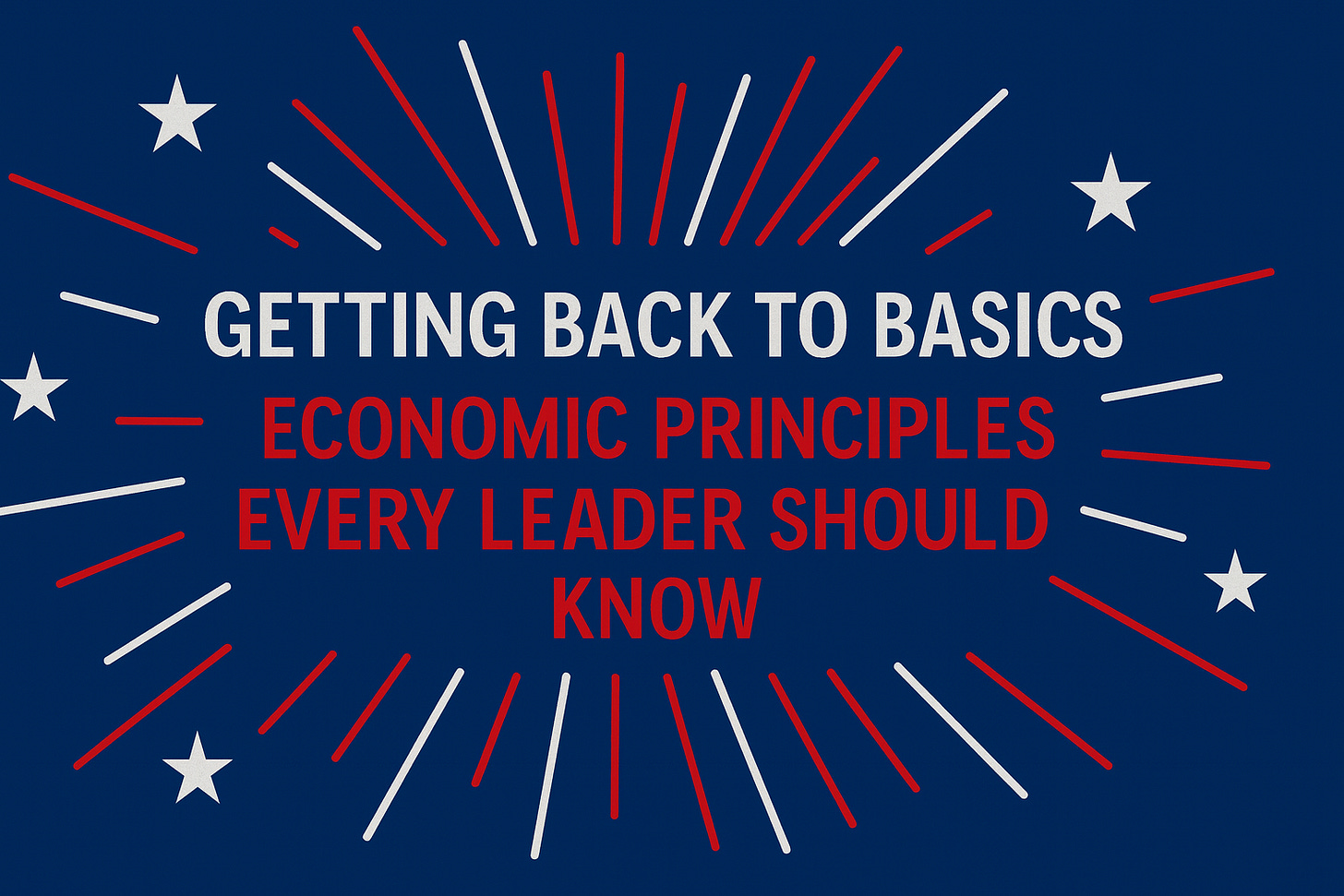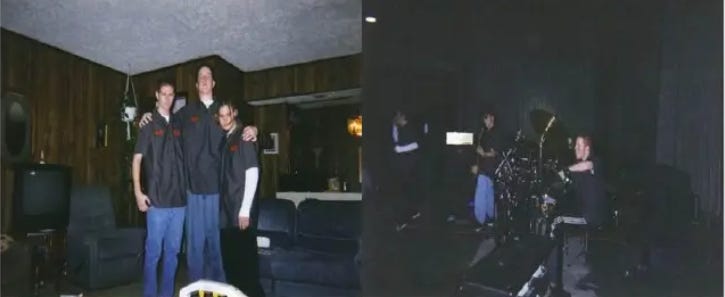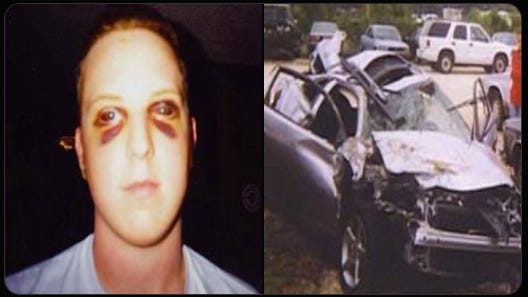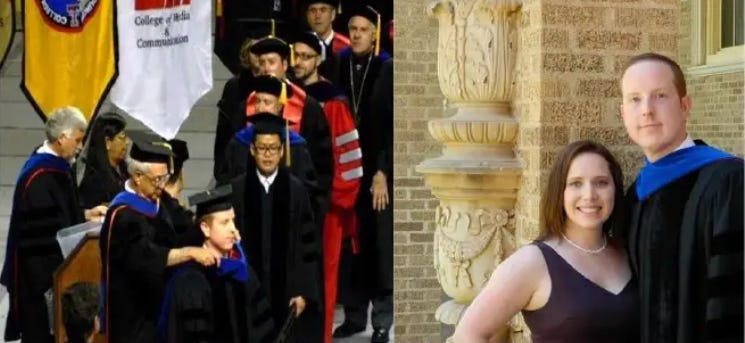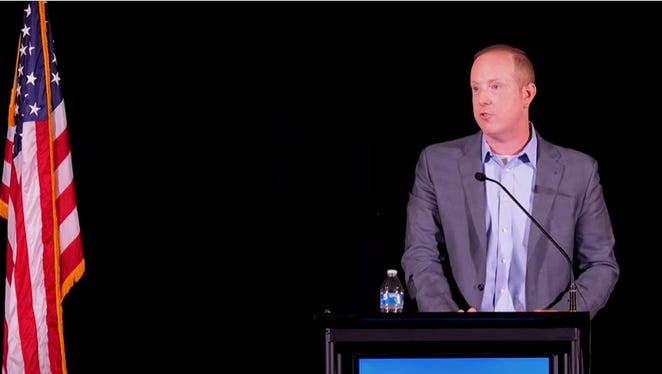Getting Back to Basics: Economic Principles Everyone Should Know
A faith-driven journey from near tragedy to a mission of helping people prosper.
Hello Friends!
There’s a running joke that economists have predicted 10 of the last three recessions.
But here’s the truth: you don’t need to be an economist to see something’s off in today’s economy. Debt is piling up, prices are still high, trade wars are back in style, and we’re debating whether government should get bigger—or a lot bigger.
Somewhere along the way, we lost sight of or never really learned the basics.
That’s why I’ve made it my mission to take people—whether they’re lawmakers, business leaders, nonprofits, students, or simply curious—back to Econ 101. Not necessarily with a lecture or a spreadsheet, although those can be helpful. But with stories, real-world examples, and plenty of audience participation.
From Rock Drums to Economic Clarity
I didn’t grow up dreaming of being an economist. I grew up in a single-mom household in South Houston. My dad battled epilepsy. Money was tight, and opportunity could feel even tighter.
Music was my outlet. I played drums in one of Houston’s top hard rock bands in my late teens and early twenties.
But on May 25, 2002—my “etched in the soul” date—my life almost ended. As a front passenger in a major car crash at 120 mph, I had my life rolling in the vehicle until it slid 40 yards upside down before finally coming to a stop. I woke up after several minutes. Crawled out of the car. And I was life-flighted to Hermann Hospital in Houston, Texas, for a possible head injury.
By the grace of God, I had many bumps, cuts, and bruises but went home from the hospital that night. That was the day I believe He saved my life and gave me a mission: to use the gifts He’s given me to help people prosper. Not just in their wallets, but in their lives—free to flourish as He intended.
That mission helped drive me away from the drums to college, where I first really encountered economics in an introductory class at San Jacinto Junior College in Houston. It clicked instantly. My studies then took me to Texas Tech University, where I majored in economics (and accounting), earning a bachelor’s degree, and proceeding directly to a doctorate.
Economics isn’t just numbers—it is about people, decision-making, and the institutions that allow us to use our God-given abilities. I taught at Texas Tech University and Sam Houston State University, spent a decade at the Texas Public Policy Foundation, served as Chief Economist at the White House’s Office of Management and Budget, and have worked with numerous groups, including Americans for Tax Reform and Pelican Institute.
Today, I run my firm, Ginn Economic Consulting, with one focus: helping people prosper by returning to the basics of economic freedom and limited government.
How I Make Econ 101 Stick
I often start with a cup of coffee.
“What’s this worth?” I ask the room. Answers vary—$3, $5, sometimes “free if my staff makes it.”
Here’s the truth: it’s worth whatever you’re willing to pay for it. That’s subjective value—and it’s why voluntary exchange is the engine of prosperity.
Another lesson: nothing is free. Every decision, government program, or scarce resource comes with a cost—money, time, or opportunity. If you can’t see it, it’s just hidden. Hidden costs are often the most dangerous kind.
These aren’t academic footnotes. They’re the foundation of sound policy. And they’re just two of the 20 timeless lessons I teach, inspired by thinkers like Milton Friedman, Friedrich Hayek, Thomas Sowell, and others.
The Podcast and the Platform
Through more than 280 episodes of my Let People Prosper Show, I’ve had the privilege of sitting down with lawmakers, policy leaders, economists, and entrepreneurs to talk about:
These conversations have reinforced one truth: the basics of economics don’t change—but our need to understand them is greater than ever.
Who I Speak To
I’ve led sessions for:
Congressional, state legislative, and local government offices that want a sharper understanding of economic fundamentals
Business associations and chambers of commerce that must navigate policy risks and market changes
Schools and civic groups eager to inspire and equip the next generation
Think tanks and advocacy groups advancing pro-growth reforms
These sessions can be in-person or virtual, ranging from briefings to interactive workshops. People remember what they engage with—not just what they hear—so I try to make it interactive.
Why This Matters Now
Economic illiteracy is expensive. We’re in a moment when “do something” has become the reflex to every problem—even when the best solution is to let people and markets work.
Strong institutions, voluntary exchange, secure property rights, and limited government aren’t just ideas. They’re the scaffolding that supports prosperity. And without them, the entire structure begins to crumble.
Let’s Get Back to Basics
Suppose you think your team, office, business group, or community could benefit from an engaging and challenging look at the fundamentals of economics. In that case, I’d be honored to connect with you about speaking at an upcoming event. My services are reasonably priced, and I’m glad to negotiate within your budget.
This isn’t about turning anyone into an economist—it’s about equipping people to see through bad policy, spot opportunity, and make better decisions, all while aligning with the principles that God designed for human freedom and flourishing.
📩 letpeopleprosper@gmail.com
🌐 vanceginn.com
The basics never go out of style. And if we get them right, we can truly let people prosper—just as God intended. I will have more on this in my Substack newsletter, so please be sure to subscribe, share, and leave a comment. Thanks!



